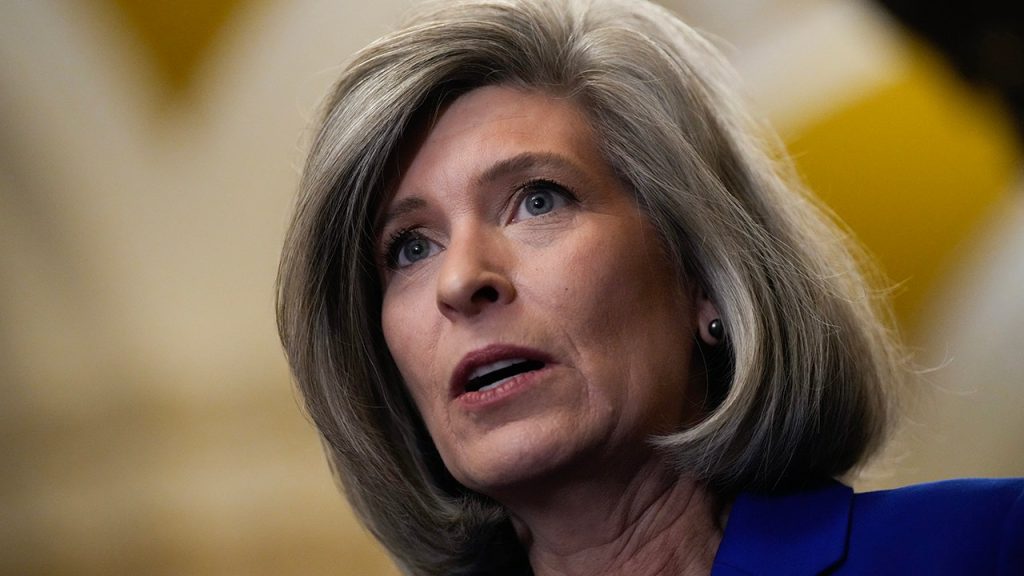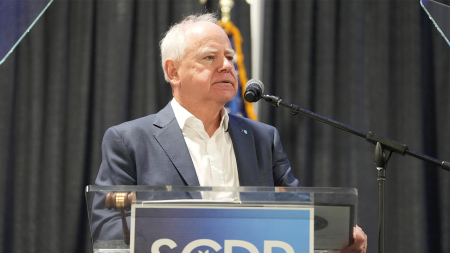Senator Joni Ernst, the leader of the Senate DOGE Caucus, has expressed deep concern over Commerce Secretary Gina Raimondo’s reported plans to rapidly expend the remaining funds allocated under the CHIPS and Science Act before President-elect Donald Trump assumes office. Ernst, in a letter addressed to Raimondo, characterizes this accelerated spending as a “binge buying shopping spree” and criticizes the apparent rush to obligate billions of dollars before the end of the current administration. The Senator argues that such hasty allocation of funds jeopardizes the careful planning and execution necessary for the success of the CHIPS Act, which aims to bolster domestic semiconductor manufacturing and research. Ernst draws parallels to reported instances of wasteful spending and fraud in COVID-19 relief funds, emphasizing the need for responsible fiscal management and oversight.
The core of Senator Ernst’s argument rests on the perceived lack of oversight and potential for mismanagement associated with the rapid disbursement of CHIPS Act funds. She questions whether the same level of scrutiny applied to the initial disbursements will be maintained in this accelerated spending phase. The Senator’s concerns are amplified by the impending change in administration, with the potential for differing priorities and approaches to the implementation of the CHIPS Act under President-elect Trump. Ernst’s comparison to the alleged misuse of COVID-19 relief funds underscores her apprehension regarding the potential for wasteful spending and the importance of ensuring accountability in the allocation of taxpayer dollars.
Senator Ernst’s letter also highlights the broader context of government spending and the national debt. She argues that the rapid disbursement of CHIPS Act funds exemplifies a pattern of unchecked spending that contributes to the nation’s growing debt burden. The Senator contends that responsible fiscal management requires careful consideration and oversight of expenditures, rather than hasty allocation driven by deadlines. This emphasis on fiscal responsibility aligns with the DOGE Caucus’s purported mission of bringing “Iowa common sense” to Washington and advocating for more prudent government spending practices.
In her communication with Fox News Digital, Senator Ernst further criticizes the Biden administration’s spending practices, characterizing them as a “spending spree” driven by a desire to exhaust available funds. She contrasts this approach with the need for careful allocation and oversight of taxpayer dollars. Ernst’s remarks suggest a broader critique of the administration’s fiscal policies, extending beyond the specific case of the CHIPS Act. This broader critique aligns with the Republican Party’s general stance on fiscal conservatism and their calls for greater restraint in government spending.
To address her concerns and ensure accountability, Senator Ernst has formally requested specific information from Secretary Raimondo. This request includes details on ongoing negotiations related to CHIPS Act funding, the projected duration of funded projects, and the total amount of money spent both before and after President-elect Trump’s victory. Crucially, Senator Ernst also seeks information on the level of coordination between the Commerce Department and the Trump transition team regarding the CHIPS Act implementation. This request for information reflects Ernst’s desire for transparency and her concern about potential discrepancies in the management of these funds during the transition period.
Secretary Raimondo, in response to the concerns raised, has emphasized the bipartisan nature of the CHIPS Act and the established plan for its implementation. She attributes the accelerated spending to the approaching deadline associated with the change in administration, suggesting that this timeline was always part of the plan rather than a last-minute rush. Raimondo also expresses confidence that the CHIPS Act funding will not be rolled back due to its bipartisan support. This response seeks to reassure critics that the accelerated spending is not driven by political motivations but rather by a pre-determined timeline for implementing the program. However, the response does not directly address Senator Ernst’s specific concerns regarding oversight and potential mismanagement. This discrepancy in perspectives highlights the ongoing debate surrounding the appropriate pace and process for disbursing CHIPS Act funds.










